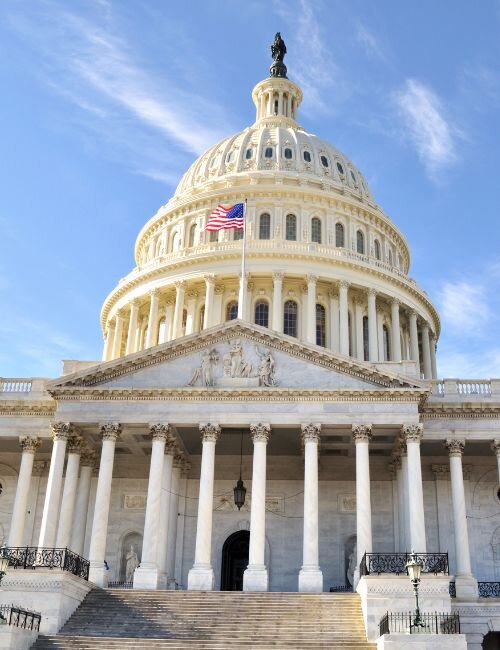
Navigating the process of selling a home with a reverse mortgage in Washington can be complex, but understanding the key steps involved can empower homeowners to make informed decisions. This financial tool, primarily designed for individuals aged 62 and above, enables homeowners to convert their home equity into cash while retaining ownership of their property. However, when it comes time to sell, specific guidelines must be followed to ensure a smooth transaction. From calculating the loan balance to understanding market conditions, this guide outlines essential insights for anyone considering selling their home under the parameters of a reverse mortgage.
Key Highlights
- Reverse mortgages allow homeowners aged 62 and above to convert their home equity into cash, while maintaining their homeownership.
- Understanding Washington’s specific reverse mortgage options helps homeowners make informed decisions.
- Eligibility requires homeowners to be at least 62 years old, have substantial home equity, and reside in the property as their primary residence.
- Reverse mortgage costs include appraisal fees, closing costs, and interest rates, influencing the loan balance.
- Preparing a home for sale under a reverse mortgage involves addressing necessary repairs and coordinating with the lender to ensure a smooth process.
Understanding Reverse Mortgages
Reverse mortgages continue to gain prominence due to their feature of payment flexibility, which allows borrowers to use their home’s equity without paying principal and interest every month. Having a clear understanding of the practicality of these loans could serve homeowners better in the state of Washington. A reverse mortgage lender is best positioned to discuss associated loans and tailor them to the borrower’s specific circumstances. Recognizing that reverse mortgages are a concept easily understood, Washington homeowners should have no trouble grasping the use of their home equity for enhanced financial flexibility. Offering the reverse mortgage process and its assumptions to borrowers ensures that the diverse needs of constituents from application to payoff are met.
What Is a Reverse Mortgage?

A reverse mortgage is a loan product that allows borrowers over the age of 62 to, unlike traditional mortgages, convert a proportion of their home’s equity into cash without having to sell their home or pay monthly mortgage payments. In this case, the lender pays the homeowner, thereby satisfying the cash flow needs of retirees who wish to augment their income, pay for health expenditures or home health services, or even facilitate home repairs.
It begins with a contract, in which the lender, known as the reverse mortgage lender, and the homeowner establish the terms of the loan, including the loan interest, the various means by which the loan can be disbursed, and provisions for repayment. There are different payment options, including lump-sum deposits, monthly payments, or a line of credit, which the homeowner can utilize to address their financial needs.
Generally, reverse mortgages are non-recourse loans, and therefore, you’ll never owe more than the home’s current market value at the time of sale. This feature ensures that neither you nor your descendants are personally responsible for the debt if the loan exceeds the property’s value, thereby giving you peace of mind in retirement.
Of the various categories of reverse mortgages, the most common is the Home Equity Conversion Mortgage (HECM), which is federally insured and regulated for the protection of the borrower. This type of loan provides flexibility to homeowners in Washington, as they can access equity while retaining full ownership of their home.
Partnering with an experienced lender—or exploring trusted alternatives like Serious Cash Offer—can help you make the right decision for your financial future. For homeowners who prefer immediate liquidity over a long-term loan, Serious Cash Offer offers a fast and straightforward way to sell your Tacoma, WA house for cash, bypassing traditional mortgage complexities and unlocking your home’s value within days.
By understanding what a reverse mortgage is and the options available, Washington homeowners can make informed decisions that support long-term financial stability and retirement comfort.
How Do Reverse Mortgages Work in Washington
There are key differences between a reverse mortgage and a conventional mortgage that Washington homeowners must understand to consider them viable financial alternatives. Unlike a mortgage, where payments are made regularly to a lender, a reverse mortgage accepts payments from home equity, allowing the homeowner to cash out a portion of their property to live in the home.
The homeowner’s first step is to report to a reverse mortgage lender. These lenders will analyze the customer’s equity, age, and the location of their home against a basic algorithm to determine eligibility. Following confirmation, the lender will send a REALTOR to appraise the property, then choose the home equity and finalize the loan, including the interest and repayment terms.
The loan may be received in the form of a single lump sum, as monthly payments, or through a cash reserve. Home equity is attributed with keeping the loan in the mortgage, along with property taxes, homeowners’ insurance, and maintenance payments. As the loan begins to age, the interest and fee balance increases incrementally.
When the homeowner sells the house, permanently vacates, or dies, the loan becomes due. Typically, the loan balance is settled, and the proceeds from the property sale cover the payment. There is also another scenario. When the loan balance is less than the selling price, the homeowner or the heirs get the remaining balance. When the selling price is less, the lender takes the loss and the borrower pays nothing above the property value, which is always the case.
For some homeowners, selling the property outright may be a more financially advantageous move than maintaining the loan. That’s where Serious Cash Offer provides a convenient alternative. As a trusted home-buying company in Tacoma and throughout Washington State, Serious Cash Offer helps homeowners sell their homes fast for cash, often within days, without paying commissions, making repairs, or navigating complex lender requirements. This can be an excellent option for those who are ready to settle a reverse mortgage balance and quickly access their remaining home equity.
By understanding how reverse mortgages work and exploring alternatives, such as Serious Cash Offer, Washington homeowners can make informed choices that align with their long-term financial goals and lifestyle needs.
Navigating Reverse Mortgages in Washington
Reverse mortgages in Washington provide homeowners with the opportunity to convert a portion of their home equity into cash while still residing in their homes. For homeowners looking to explore this tool, understanding the local issues, including the regulations governing Washington state, as well as the specific rules of a reverse mortgage, is essential. Analyzing the various Washington reverse mortgage options enables homeowners to make the process more efficient by selecting the best mortgage agreement that most closely matches their requirements and intentions. Equally, knowing the specific functions of a reverse mortgage lender in this state informs homeowners on how to best utilize this financial option in their mortgage planning.
Eligibility Criteria for a Reverse Mortgage in Washington

As a Washington homeowner considering a reverse mortgage, there are specific eligibility criteria that need to be considered before applying. These criteria evaluate your ability to leverage your home equity while maintaining your residence.
The first and primary criterion is the applicant’s age. The applicant’s age must be at least 62 to be approved for a reverse mortgage. This guideline is in place to ensure the program achieves its goal, which is to help those who are retired and sensitive about their finances or facing additional healthcare expenses to retire peacefully in their own home.
The second criterion is that the applicant must own the home as their primary residence. The reverse mortgage is taken against the home, which, considered for the reverse mortgage, must be predominantly occupied by the residence of the borrower for the greater part of the year. Generally, a second home or investment property does not qualify for this program, which is designed to ensure that equity in the house can be accessed in a primary residence.
Another vital aspect is home equity. Among other property requirements, home equity must also be substantial. Having an existing mortgage does not necessarily negate the ability to qualify, as long as the mortgage balance is low and can be paid off with the proceeds of a Reverse Mortgage. This is sufficient to demonstrate that there is equity remaining to distribute, sufficient equity, and to balance the interests of the mortgagor and mortgagee.
Washington lenders, for instance, conduct a financial assessment as an additional step to confirm that their borrowers can fulfill ongoing obligations, such as property taxes, homeowner’s insurance, and upkeep. This step confirms that for the duration of the loan, the homeowner can control the management of the above expenses. This strengthens the premise that the reverse mortgage will be upheld.
In Washington, working with a knowledgeable and experienced reverse mortgage lender can help make the process of obtaining a reverse mortgage easier. They will guide you through the regulations necessary to acquire state reverse mortgages, take the time to explain the financial obligations you will incur, and make sure that all paperwork is put forth. Washington homeowners who are willing to work with a qualified lender can easily reverse mortgage and cover other financial necessities, all while keeping their home.
Financial Implications of a Reverse Mortgage
Reverse mortgages are an option that warrants serious consideration for homeowners in Washington. What remains important to evaluate is how the process of taking out a mortgage loan affects the equity in one’s home and one’s future finances. While reverse mortgages are sought after for their immediate pumping of cash into their holders’ pockets, the reverse mortgage owners should be careful to balance their immediate cash needs against their financial exposure. This is the reason why reverse mortgages are calculated and their costs are considered. Such calculations are central to an advocate’s whole equity and economic strategy.
Calculating Reverse Mortgage Costs in Washington
Cost appraisal is a vital aspect for homeowners across Washington, and this is especially true for financial decisions that are based on a reverse mortgage. The financial transactions and potential equities a person derives from a reverse mortgage are determined by myriad variables and conditions.
First and foremost, the appraisal fee directly impacts the total expenses for the loan. An appraisal sets a benchmark for what the house can be valued at, and how one can draw on their reverse mortgage. The higher the home appraisal value, the more a reasonable reverse mortgage a person can avail, and home equity is directly related to the loan value. Furthermore, the closing costs that the borrower needs to bear, the pre-closed mortgage value, the mortgage servicing fee, and the insurance cover servicing, all these costs should be included in the borrower’s loan deal to avail the loan in their consideration ultimately. The unavailability of these funds is referred to as the borrowing capacity.
The other reverse mortgage appraisal costs can be easily attributed to the interest rate. The loan is chargeable against a fee. Interest can be earned at a fixed rate or adjusted at the lender’s discretion. Since interest is a dynamic variable and its total value can be gained over a period of time, the implications it brings to the equity are limitless, and reverse mortgage values should be considered. Interest rates should be vetted based on competitiveness across a characteristic region. Loan appraisal offers should be presented from the same area as that of Washington.
The laws of the state of Washington have a direct impact on the pricing and cost structure of reverse mortgages. Custom regulations promote cost transparency and protect borrowers by clearly defining comprehensive terms and fees that lenders are required to disclose. The laws aim to protect borrowers and eliminate the risk of unanticipated excessive cash flow burdens.
For homeowners considering selling their home instead of refinancing, Serious Cash Offer offers an alternative solution. The company helps Washington homeowners sell their house fast for cash—often in as little as a few days—without paying agent commissions or repair costs. This option can be especially beneficial for those with a reverse mortgage who prefer to settle their loan balance and access their remaining home equity without the delays of a traditional sale.
By carefully reviewing all expenses—such as appraisal, closing, insurance, and interest—and exploring options like Serious Cash Offer, you can accurately calculate your reverse mortgage costs and make informed, strategic financial choices. Taking the time to evaluate these details allows Washington homeowners to utilize their home equity while maintaining long-term financial stability confidently. Contact us today!
Steps to Sell a Home with a Reverse Mortgage
Navigating the sale of a home with a reverse mortgage in Washington involves understanding several key steps that align with state laws and financial strategies. Homeowners need to prepare their house for sale, understand the implications of the loan on their property, and coordinate with lenders to ensure a smooth transaction. By familiarizing themselves with the reverse mortgage process, homeowners can effectively transition from holding a reverse mortgage to selling their home, securing financial benefits while complying with state regulations and mortgage terms.
| Key Preparations | Market Considerations | Lender Coordination |
| Review loan documents | Assess current market trends | Notify lender about selling intentions |
| Obtain a payoff quote | Determine ideal listing price | Understand loan repayment terms |
| Gather necessary home documents | Evaluate timing of sale | Coordinate with lender for closing requirements |
| Consult financial advisor | Identify target buyer demographics | Request a formal loan payoff statement |
This table outlines the critical steps and considerations for selling a home under a reverse mortgage in Washington, enabling homeowners to navigate this financial transition effectively.
Preparing Your Home for Sale in Washington

Just as with any mortgage, selling a house with a reverse mortgage equity requires a planned approach to protect your equity and comply with loan agreements. To begin, you should determine the overall state or condition of the property. Homes that are tidy, functional, and maintained are a buyer’s delight. Address any issues regarding repairs that can improve the home’s value. Ensure you focus on repairs that provide value for your investment in renovations. You can even update the kitchen and bathroom, put a fresh coat of paint, and improve the curb appeal. These touch-ups do affect the home-selling price and the speed at which the home is sold.
As for Washington, the most crucial factor is the real estate market, even in this case, for determining a listing price for your home. Go over some similar sales in the Washington area and those of a local expert in real estate markets in the state of Washington. Achieving an equilibrium between the price of the home and the reverse mortgage balance, so that equity is maximized, is necessary to extract the most favorable equity from the transaction for a reverse mortgage. Illinois has specific properties that the seller must be aware of to take advantage of a reverse equity mortgage. Ensure you are up to date with property taxes, mortgage payments, and the selling agreements so that the seller minimizes payment losses.
Coordinating with your reverse mortgage lender is a step that needs a great deal of attention as well. Inform your lender about your decision to sell so that they can calculate the loan payoff amount, including interest and any applicable fees. Knowing this number gives you the knowledge to estimate the amount of equity you will have after closing. Furthermore, the lender will assist you with the necessary administrative tasks, ensuring a smooth closing of the deal.
Think about engaging a reverse mortgage adviser, a financial adviser, or a certified realtor as well. They have an expertise in Washington state’s unique housing laws. They help the sellers in organizing and assessing market strategies and paperwork after the sale. This way, with well-thought-out administrative plans and context, and the advice of authority in the area, you can easily sell your Washington home with a reverse mortgage in a safe way, which is beneficial to your finances, too.
Frequently Asked Questions
What is a reverse mortgage, and who is eligible?
A reverse mortgage is a loan available to homeowners aged sixty-two or older, which enables them to keep ownership of the home while drawing on the home equity as cash. The borrower must be at least sixty-two years old and have considerable home equity, and must also use the home as their primary residence.
How does the reverse mortgage process work?
The workflow begins with the borrower approaching a lender, marking the starting point of the reverse mortgage process. From there, the lender is tasked with assessing the home’s value and signing a mortgage deal. Once a reverse mortgage is signed, the lender is responsible for disbursing the cash, which the borrower can use to maintain the house and pay off the equity.
What costs are associated with a reverse mortgage?
Home equity loans can be reverse mortgaged. Home equity loans often incur costs, including appraisal fees, interest, and closing costs. Home equity loans must be reverse-mortgaged, as there are other supplementary costs, such as service fees and insurance premiums, which borrowers must factor into their business equity.
How are reverse mortgages regulated in Washington?
In Washington, state laws regulate the application process for reverse mortgages, the assessment of borrowers, and the requirements for lenders. The rules are in place to safeguard customers by providing specific information about the loan service fees so that homeowners can make informed and rational decisions.
How do you navigate selling a home with a reverse mortgage?
This stage involves making repairs, determining the home’s value, and coordinating lending to estimate the mortgage loan. Sellers must fulfill the mortgage obligations and incorporate the reverse mortgage to consider the market’s geometry.
Helpful Washington Blog Articles
- Essential Documents For Selling Your House In Washington
- Understanding Washington’s Property Tax Rates For Homeowners And Real Estate Investors
- Guide To Selling Your House During A Divorce In Washington
- How To Legally Sell Your Parents’ House In Washington Using Power Of Attorney
- How To Successfully Sell A Fixer-upper Home In Washington’s Real Estate Market
- Understanding Hoa Fee Management During Real Estate Closings
- Do All Heirs Have to Agree to Sell Property in Washington?
- FSBO in Washington: A Cost Guide for Home Sellers
- Effective Ways To Minimize Closing Costs In Washington
- Can you sell a house with a mortgage in Washington
- Can A Seller Legally Back Out Of A Real Estate Contract In Washington?
- Selling Your House For Less Than Appraised Value In Washington
- Guide To Selling An Inherited House In Washington
- Selling A Fixer-upper Home In Washington State
- Selling Your Washington House As-is Without Repairs
- How Long After an Appraisal Can You Close in Washington
- Selling Home with Reverse Mortgage in Washington

